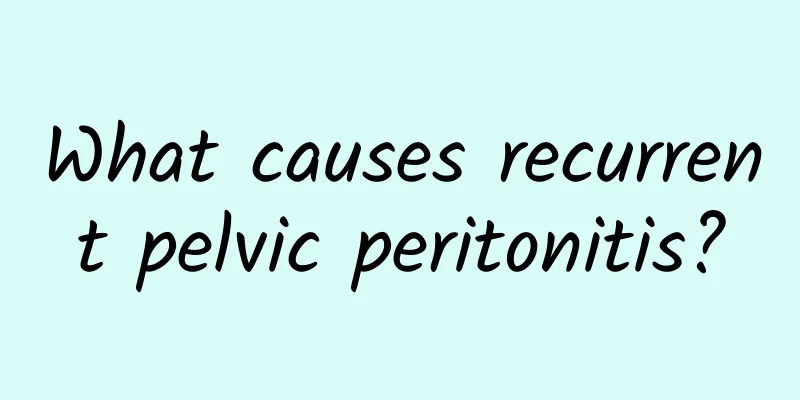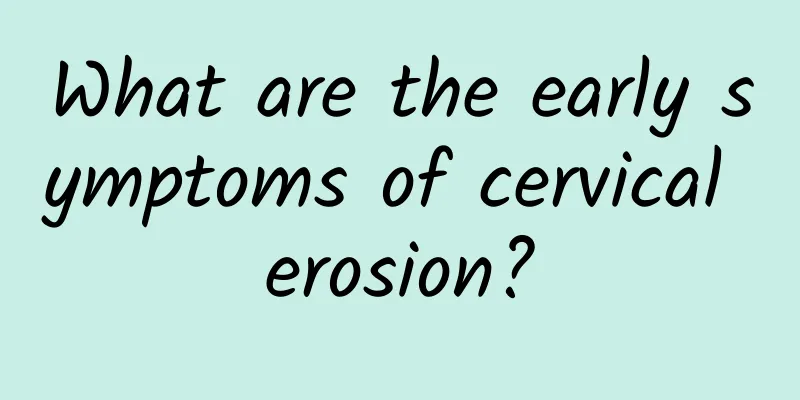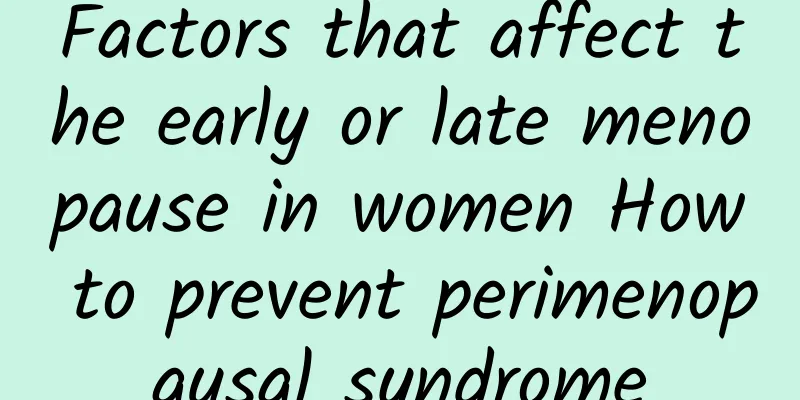What causes recurrent pelvic peritonitis?

|
Many patients with pelvic peritonitis are particularly curious, so they ask what are the causes of pelvic peritonitis? Because pelvic peritonitis is now a relatively common gynecological disease in women, understanding the causes of pelvic peritonitis plays a good role in controlling the disease, so today our experts will introduce it to you in response to everyone's questions! 1) Postpartum or post-abortion infection: After delivery, the mother is weak, the cervix fails to close in time due to residual blood and turbid fluid flowing out, there is a placental detachment surface in the uterine cavity, or the birth canal is damaged during delivery, or there are residual placenta and fetal membranes, etc., or sexual intercourse is too early after delivery, pathogens take advantage of the opportunity to invade the uterine cavity and easily cause infection; post-abortion infection can occur if vaginal bleeding lasts too long during spontaneous abortion or medical abortion, or there are tissues remaining in the uterine cavity, or the aseptic operation of the artificial abortion operation is not strict, etc. 2) Infection after intrauterine surgical operation: such as placement or removal of intrauterine contraceptive ring, curettage, tubal insufflation, hysterosalpingography, hysteroscopy, submucosal myomectomy, etc. Due to sexual life before operation or lax surgical disinfection or inappropriate selection of preoperative indications, the original chronic inflammation of the reproductive tract may cause acute attack and spread due to surgical interference; some patients do not pay attention to personal hygiene after operation, or do not follow the doctor's orders after operation, which may also cause bacterial ascending infection and cause pelvic peritonitis. 3) Poor menstrual hygiene: If you do not pay attention to menstrual hygiene, use unclean sanitary napkins and panty liners, take a bath during menstruation, have sexual intercourse during menstruation, etc., pathogens may invade and cause inflammation. 4) Direct spread of inflammation from adjacent organs: The most common cases are appendicitis and peritonitis. Since they are adjacent to the female internal reproductive organs, inflammation can spread directly and cause pelvic peritonitis. In chronic cervicitis, inflammation can also spread through the lymphatic circulation and cause pelvic connective tissue inflammation. The above is a brief introduction to the causes of pelvic peritonitis. If you want to know more about the causes of pelvic peritonitis, you can consult our online experts at Q&A. Our experts will give you detailed answers! |
<<: How to deal with recurrent pelvic peritonitis
>>: What causes recurrent pelvic peritonitis?
Recommend
What is the recurrence rate of cervical warts?
It is an indisputable fact that the recurrence ra...
How to check pelvic effusion
How to check for pelvic fluid accumulation? 1. Th...
Why do women have long-term dysmenorrhea?
Normal07.8磅02falsefalsefalseMicrosoftInternetExplo...
What foods can't be eaten for cervical erosion? You can't eat these foods for cervical erosion.
Stimulating foods and hair-raising foods will hin...
What causes endometrial polyps?
Endometrial polyps are a common gynecological dis...
Uterine fibroids usually present as abnormal vaginal discharge
Uterine fibroids usually manifest as abnormal vag...
What should I pay attention to after I have just had an abortion? What should I eat after I have just had an abortion?
What should I pay attention to after having an ab...
How long after an abortion can I have another child?
Many women choose abortion because of fetal abnor...
Does no added sugar really mean sugar-free? Why do sugars appear on the nutrition labels of sugar-free yogurt and fresh milk?
Sugar is the public enemy of health. It is the ma...
Focus on the diagnosis and treatment of vulvar leukoplakia in the middle-aged and elderly
Do you know what the symptoms of vulvar leukoplak...
Can congenital absence of vagina in women be cured?
You should know that the symptoms of congenital a...
What are the characteristics of chronic cervicitis bleeding
The bleeding characteristics of chronic cerviciti...
Does uterine fibroid surgery affect pregnancy? What should I pay attention to after uterine fibroid surgery?
Uterine fibroids are a common gynecological disea...
What are the dietary considerations for cervical precancerous lesions?
As a malignant tumor, cervical precancerous lesio...
What are the symptoms and causes of endometriosis?
I believe that many female friends have heard of ...









